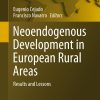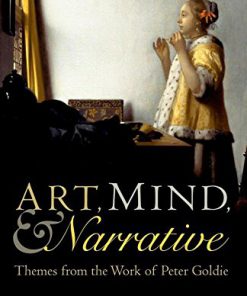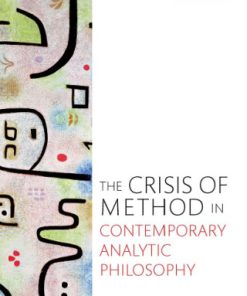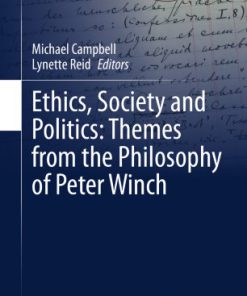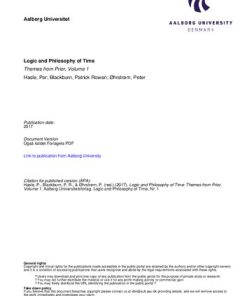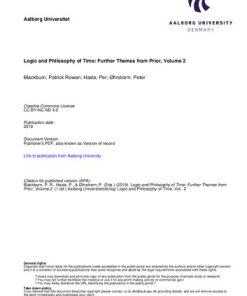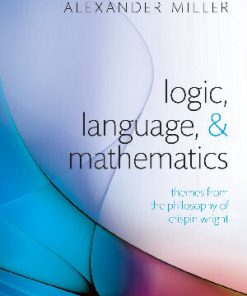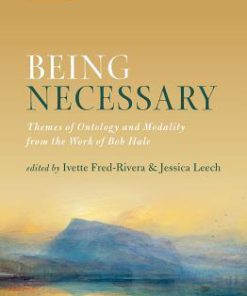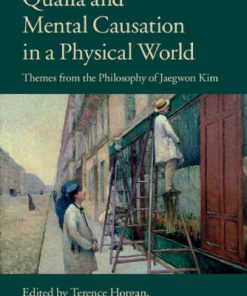Being, freedom, and method: themes from the philosophy of Peter Van Inwagen 1st Edition Keller 0192508148 9780192508140
$50.00 Original price was: $50.00.$25.00Current price is: $25.00.
This completed downloadable of Being, freedom, and method: themes from the philosophy of Peter Van Inwagen First Edition Keller
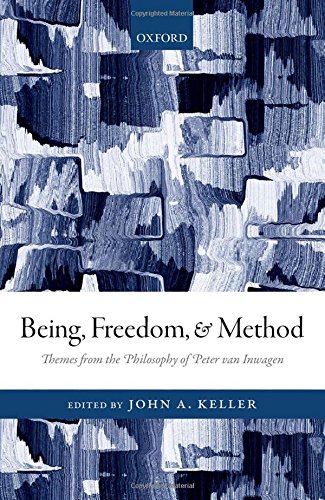
Instant downloaded Being, freedom, and method: themes from the philosophy of Peter Van Inwagen First Edition Keller pdf docx epub after payment.
Product details:
- ISBN 10: 0192508148
- ISBN 13: 9780192508140
- Author: Keller
John Keller presents a set of new essays on ontology, time, freedom, God, and philosophical method. Our understanding of these subjects has been greatly advanced, since the 1970s, by the work of Peter van Inwagen. The contributions, from some of the most prominent living philosophers, engage with van Inwagen’s work and offer new insights in metaphysics, philosophy of religion, and the philosophy of philosophy. Van Inwagen himself gives selective responses. In metaphysics, the volume will particularly interest philosophers working on free will, relational vs constituent ontologies, and time travel; in philosophy of religion, notable topics include the ontological argument, the compatibility of theism and evolution, the problem of evil, and the doctrine of atonements. And there are three papers on the hot topic of philosophical success, with responses from van Inwagen.
Table of contents:
Part I. Being
1. Theories of Character
1.1
1.2
1.3
1.4
1.5
2. A One Category Ontology
2.1 Ontological Category Theory
2.2 A Qualitative Mereology
2.3 Parthood and Constructing the World: Traditional Bundle Theories
2.4 Parthood and Constructing the World: Mereological Bundle Theory
2.5 The Individuation of Qualitative Duplicates
2.6 Indiscernible Particles in Quantum Mechanics
3. Properties as Parts of Ordinary Objects
3.1 The Constituent Ontology
3.2 Basic Principles
3.3 Constituency and Parthood
3.4 Brute Character
3.5 Relations
3.6 How the Constituent Ontology Leads to Substance Dualism
3.7 Things Composed of Atoms
3.8 Brute Character Again
3.9 Restricting Composition
3.10 Mereological and Constitutive Composition
3.11 What if Constituents Aren’t Parts?
4. Time Travel and the Movable Present
4.1 Theories of Time and Time Travel
4.2 The Traditional Model Versus Movable Objective Present
4.3 MOP Errors and Extant Questions
4.4 Conclusion
Part II. Freedom
5. The Disconnect Problem and the Influence Strategy
5.1 The Freakish Demon
5.2 Deliberation
5.3 The Self
5.4 Degrees of Influence
5.5 The Transition Point
5.6 Contextualism
5.7 Conclusion
6. Revisiting the Mind Argument
6.1 Introduction
6.2 Laying a Foundation
6.3 Van Inwagen and the Consequence Argument
6.4 Van Inwagen and the Mind Argument
6.5 The Invalidity of the Consequence Argument
6.6 The Invalidity of the Mind Argument
6.7 Revisiting the Consequence Argument
6.8 Reformulating the Mind Argument
6.9 Conclusion
7.1. Symposium on the Fixity of the Past: Incompatibilism and the Fixity of the Past
7.1.1
7.2. Symposium on the Fixity of the Past: Freedom and Modality
Part III. God
8. Defenseless: A Critique of Van Inwagen’s Response to the Argument from Evil
8.1 Preliminaries—What is a Defense?
8.2 Successful Defense—Some Examples
8.3 From Logical to Evidential/From Apology to Defense
8.4 Atheist’s Sticking Points—What a Defense of Theism Must Do
9. The Problem of Evil and Atonement
9.1 Introduction
9.2 The Nature of Suffering
9.3 Willing What God Wills
9.4 Suffering and Atonement
9.5 Conclusion
10. Swing Vote
10.1 Introduction
10.2 Alvin Goldman
10.3 Carolina Sartorio
10.4 Derek Parfit
10.5 Application to van Inwagen onthe Problem of Evil
10.6 Concluding Remarks
11. Theism and Allism
12. The Evolutionary Argument for Atheism
12.1 Draper’s Evolutionary Argument for Atheism
12.2 Definitions
12.3 Draper’s Defense of Premise 2: An Overview
12.4 Plantinga on Draper’s Argument
12.5 Showing P(~S/N) >! P(~S/T)
12.6 Conclusion
13. Must Anselm be Interpreted as a Meinongian?
13.1 The CA-Assumption
13.2 The Roles of the CA-Assumption in Anselm’s Argument
13.3 The CA-Argument
13.4 Must Anselm be Interpreted as a Meinongian?
13.5 Conclusion
Part IV. Method
14. Why Isn’t There More Progress in Philosophy?
14.1 The Central Thesis
14.2 Argument for the Central Thesis
14.3 The Varieties of Progress
14.4 Philosophical Argument
14.5 New Philosophical Methods
14.6 Explanations
14.7 The Prospects for Further Progress
15. Philosophical Individualism
15.1 Introduction
15.2 Philosophical Success
15.3 In Support of Philosophical Individualism
15.4 Alternative Forms of Individualism
15.5 Success and Progress
15.6 Success Pluralism
15.7 Conclusion
16. Are There any Successful Philosophical Arguments?
16.1 Introduction: A Pessimistic Verdict
16.2 On Counterexamples and Philosophical Substance
16.3 Van Inwagen’s Criterion of Philosophical Success
16.4 Philosophical Disagreement and the Pessimistic Verdict
16.5 Conclusion
Part V. Afterword
17. Concluding Meditation
People also search:
what is the definition of being free
constitutional freedom meaning
what is freedom is a constant struggle about
define being free
defining freedom answers
You may also like…
Politics & Philosophy - Anthropology
Art Mind and Narrative Themes from the Work of Peter Goldie 1st Edition Julian Dodd
Politics & Philosophy - Anthropology
The crisis of method in contemporary analytic philosophy First Edition Baz
Cookbooks
Politics & Philosophy - Social Sciences
Ethics Society and Politics Themes from the Philosophy of Peter Winch Michael Campbell
Uncategorized
Politics & Philosophy - Anthropology
Politics & Philosophy


